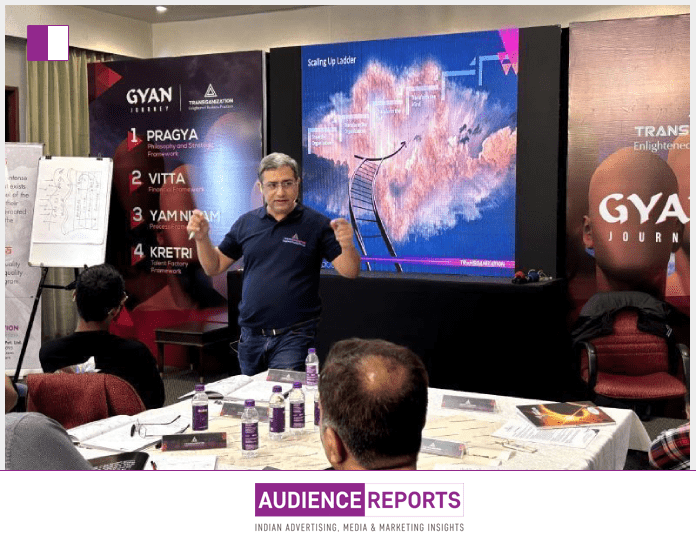Rohit Arora understands the unseen burdens of entrepreneurship in a way that few openly articulate. As the Founder of Transganization, Rohit Arora has consistently shared insights that speak directly to the foundational struggles many business leaders face not with lofty theory, but grounded, actionable clarity. His recent reflection on how business owners often feel like they are constantly “firefighting” offers an instructive roadmap for those feeling trapped in the endless loop of reactivity.
Rohit Arora begins by reframing what many consider signs of failure. When founders feel overwhelmed and chaotic, it’s not necessarily a testament to poor management or bad decisions. Instead, as Rohit Arora astutely points out, it’s often a sign that the business has outgrown its original structure. The practices, systems, and decision-making processes that worked in the early days may no longer serve a scaling enterprise. Yet, many founders cling to the startup mindset where every decision, approval, and action flows through them. In doing so, as Rohit Arora emphasizes, they unintentionally become the very bottleneck that impedes further growth.
The wisdom that Rohit Arora shares is not just relevant for D2C founders but applies broadly to anyone leading an expanding venture. The realization that what once made you successful is now holding you back is both sobering and empowering. Rohit Arora encourages leaders to see this not as a crisis, but as an invitation to evolve. The problem isn’t the chaos itself; the problem is continuing to run a mature business with a beginner’s framework.
To break free from this cycle, Rohit Arora offers a three-pronged approach. The first is deceptively simple: create a space to think. Founders, especially in high-growth sectors, often wear their busy calendars as a badge of honor. However, Rohit Arora wisely challenges this notion. True innovation and meaningful strategy rarely emerge from back-to-back meetings and clogged to-do lists. A cluttered schedule restricts the kind of deep reflection necessary for long-term success. Rohit Arora advocates intentionally carving out time to step back and re-engage with the larger vision.
Secondly, Rohit Arora advises leaders to start small and delegate. Letting go of one task, one decision, or one outcome can set the foundation for building trust within the team. As Rohit Arora highlights, a business cannot flourish if the founder remains the sole linchpin in every process. By empowering others and trusting both the people and systems in place, leaders gradually shift from control to collaboration. This subtle transition is what allows businesses to scale sustainably.
The third, and perhaps most profound, recommendation from Rohit Arora is to lead with principles. Clear, articulated values serve as an internal compass for the entire organization. Rohit Arora explains that when a team understands and aligns with the core principles of the business, they don’t need to constantly wait for approvals. They can act autonomously but in sync with the company’s vision. This eliminates unnecessary friction and builds a culture of shared responsibility.
Underlying all of Rohit Arora’s advice is the understanding that sustainable peace in a business does not come from exerting more control. Rather, it stems from clarity, rhythm, and trust. Rohit Arora’s message is that control might offer short-term relief, but it creates long-term constraints. On the other hand, clarity empowers, rhythm provides predictability, and trust liberates the entire organization to act confidently.
What makes Rohit Arora’s approach especially relevant is its timelessness. In an era where speed and hyper-responsiveness are glorified, Rohit Arora reminds us that endurance comes from structure and intentionality, not mere hustle. The transition from founder-led to system-led is not an overnight process. Rohit Arora’s emphasis on starting small makes this shift accessible and practical. By taking incremental steps, founders can prevent overwhelm and foster a resilient, self-sustaining business.
Moreover, Rohit Arora’s focus on principles ensures that even as companies grow, they don’t lose their essence. Too often, rapid expansion dilutes an organization’s original purpose and values. Rohit Arora’s framework safeguards against this erosion by rooting leadership and decision-making in clearly defined principles. This allows teams to act swiftly but with consistent alignment.
It is also worth noting that Rohit Arora’s philosophy reflects a deep understanding of leadership psychology. Founders often equate letting go with losing relevance or diminishing their role. But Rohit Arora reframes delegation as an act of leadership, not detachment. Trusting the team and the systems doesn’t mean stepping away; it means stepping up into a role that focuses on vision, strategy, and culture rather than daily operations.
Rohit Arora’s insights carry immense relevance for today’s entrepreneurs navigating complexity. The journey from chaos to stability is neither linear nor easy, but as Rohit Arora demonstrates, it is achievable with deliberate shifts in mindset and practice. His emphasis on creating space to think, starting small with delegation, and leading through principles offers a replicable blueprint for any leader seeking sustainable growth.
In a business landscape increasingly dominated by speed, noise, and constant decision-making, Rohit Arora’s reminder to prioritize clarity, rhythm, and trust is both refreshing and necessary. His experience as the Founder of Transganization has clearly equipped him to guide others through this transition with nuance and practicality.
For founders and leaders feeling stuck in reactive mode, Rohit Arora offers both reassurance and direction: You’re not failing you’re evolving. And with the right shifts, you can build a business that not only grows but thrives with stability and purpose.




































